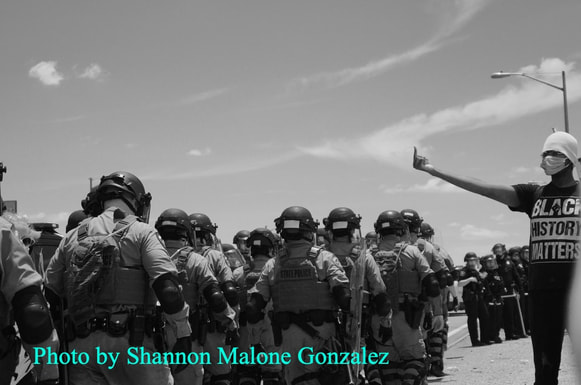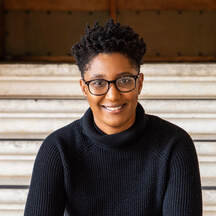|
There’s a common saying where I’m from—“the truth hits different when you’re guilty.” My elders repeated this phrase as both a statement of fact and a warning against covering up future misdeeds. When guilty, they advised us to strengthen our ability to stand fully in our mistakes. They taught us that the same space where one is “hit different” is the space where one learns from their mistakes and can clearly pave a path forward towards truth, justice, and restoration. They encouraged us to recognize these steps as the process of building character. The United States is guilty. And the truth is “hitting different” all across the country. Policing in the United States is rooted in an old belief in which black people and people of color are property and pawns in a capitalist, white supremacist, patriarchal and heteronormative nation-state. For centuries, police inflicted violence on us and our communities when we step out of our place or assert our humanity—when we claim that we are more than what those in power would deem us to be. From slave patrols to the modern-day, militarized police departments, officers are agents of the state imbued with power to capture us and determine our fates. In the past, determining our fates meant tracking down black people fleeing captivity and returning them to white slave owners. It meant invading indigenous lands and seizing their children and sending them to state-owned boarding schools. It meant rounding up and incarcerating Japanese Americans en masse during World War II. Today, it means officers wielding state power on the streets and deciding who lives and who dies and who’s life and communities are ruined. My research shows that for black women, survival includes figuring out how to stay alive and how to protect themselves from the countless ways officers inflict gender-based and sexual violence upon them. In my interviews with black women, they shared stories of being sexually assaulted when pulled over for a minor traffic violation and being told they would receive a ticket unless they complied; of surviving years of child and family domestic abuse from an officer in their home because they felt that no one at the local police department would help them; of being mocked and laughed at when reporting rape or domestic violence; of being afraid in their homes at night after a community police officer who knows where they live sexually harasses them and threatens them with more violence. Many of these black women, like Oluwatoyin Salau a Black Lives Matter protestor who was recently assaulted and killed in Florida, are on the frontlines working to alleviate lethal force and advocate for justice in their communities. Yet, when they speak out on their own behalf, their truths are repeatedly pushed to the margins in conversations on police brutality and considered less urgent matters in discussions on police reform. This is that space in which we must stand. In the past, our anger has coalesced into social movements pushing for visibility and justice. INCITE!, #BlackLivesMatter, #SayHerName, #BlackTransLivesMatter, #SayTheirName are recent iterations from communities and activists attempting to transform our society into a place where everyone is free from violence. For this freedom to be fully manifested, we must include every black person and person of color and contend with every experience of police violence. We must no longer be content with a single story of police brutality. Our outrage must include those on the margins. We must include black people with disabilities. We must include black trans and cis women. We must include black trans men and non-binary people. We must remember the names of Atatiana Jefferson, Tony McDade, Breonna Taylor, Brianna Hill, Pamela Turner, and Regis Korchinski-Paquet alongside George Floyd, Philando Castile, and Eric Garner. We must equally reckon with Shandegreon “Sade” Hill and other victims of Daniel Holtzclaw, a serial rapist who in 2016 was sentenced to 263 years in prison for using his position as a police officer to run background checks on black women and target those with criminal records. We must include the countless other victims, whose names we do not know, of police gender-based and sexual violence. We must include the murders and assaults against black trans women. We can build inclusive and safe communities for everyone by centering those who are too easily forgotten. Black feminists repeatedly urge us to return to the margins, with bell hooks (1990, p. 150) theorizing it as a space that “offers to one the possibility of radical perspective from which to see and create, to imagine alternatives, new worlds.” The margins are where we are hearing calls to abolish and defund policing. The margins are the path forward towards truth, justice, and restoration.
0 Comments
Your comment will be posted after it is approved.
Leave a Reply. |
Archives
October 2021
Categories |
Proudly powered by Weebly



 RSS Feed
RSS Feed